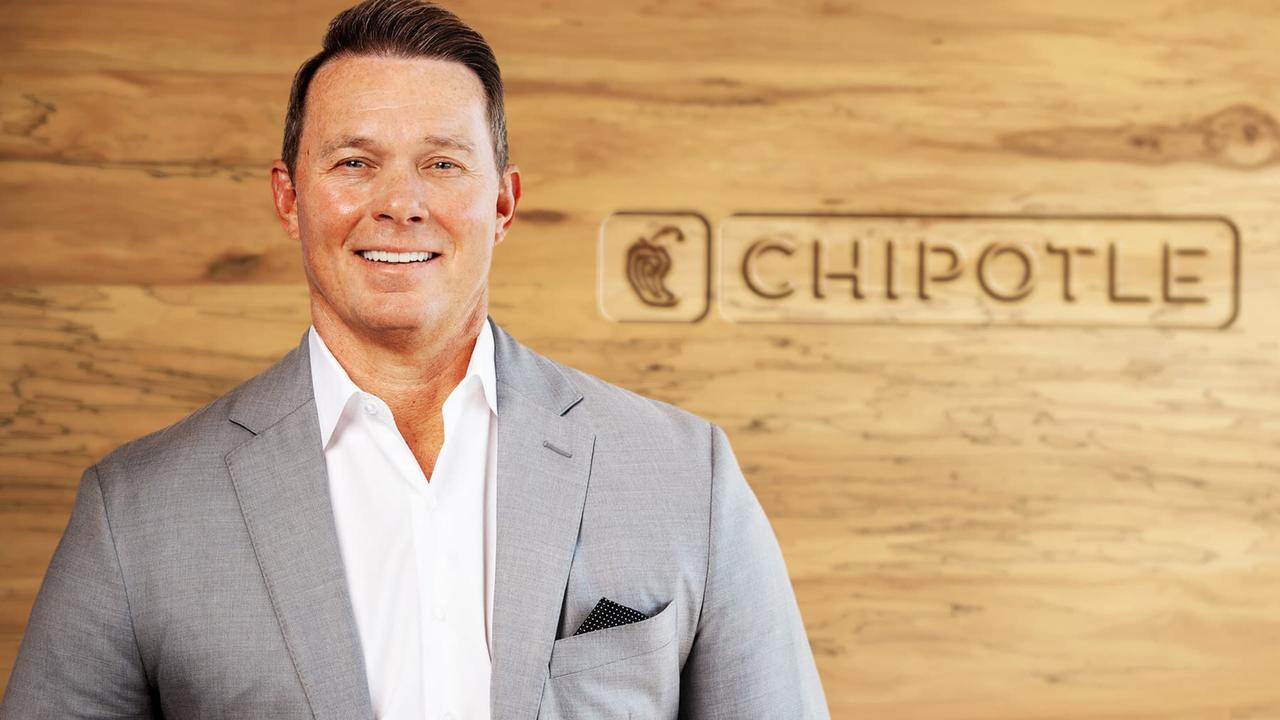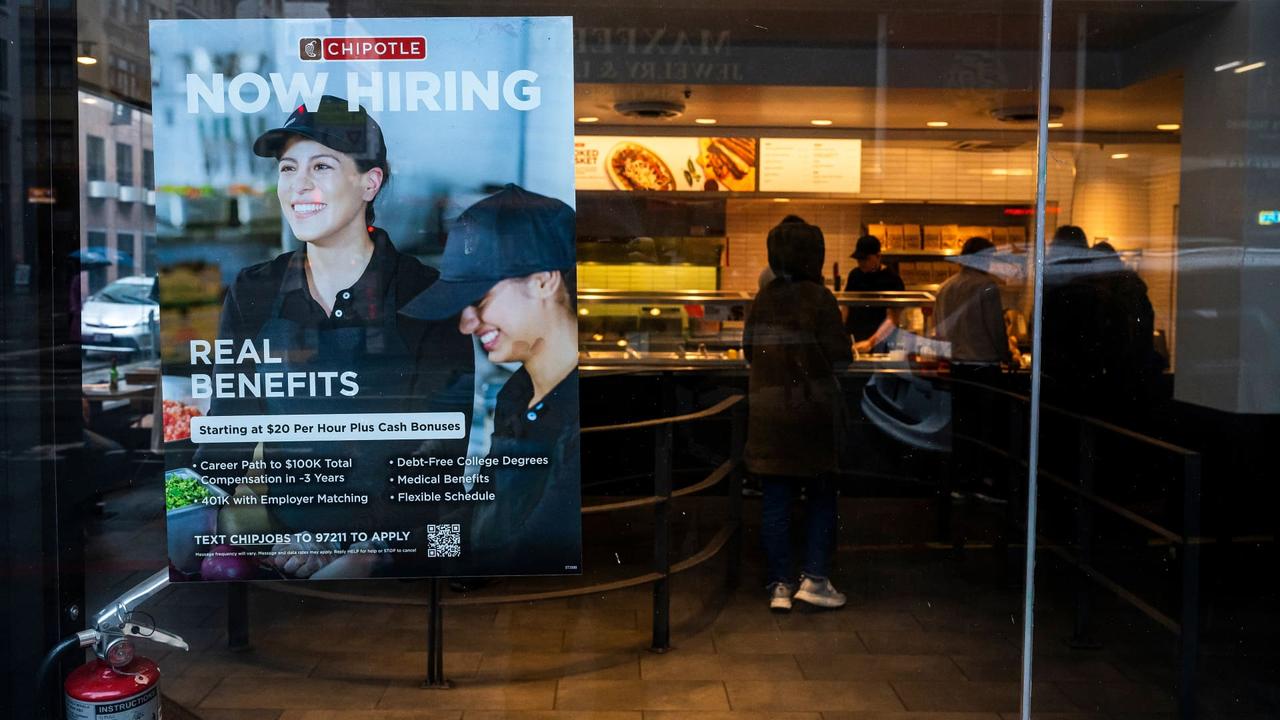Chipotle Introduces AI-Powered Robot to Revolutionize Tortilla Chip Production
3 Sources
3 Sources
[1]
Chipotle Mexican Grill tries out robots that can halve avocados -- and prep time
Chipotle Mexican Grill is piloting robots to help prep avocados for guacamole and build burrito bowls in two of its California eateries. The chain on Tuesday announced it is testing two machines in its restaurants for the first time, with the company looking for feedback from employees and customers before deciding on whether to expand the technology to other Chipotle restaurants. Dubbed Autocado, the guac helper robot can cut, core and peel avocados in 26 seconds on average, halving the time it takes human workers to make guac. Though the company's human employees will still have to mash the fruit by hand, the technology could spare them a fair amount of toil, as Chipotle expects to use roughly 5.2 million cases of avocados -- the equivalent of 129.5 million pounds of fruit -- this year at locations across the U.S., Canada and Europe. A second collaborative robot, or "cobot," called the Augmented Makeline, will use automated technology to build bowls and salads, which make up 65% of the chain's digital orders, according to Chipotle. The automated assembly system disperses a set amount of each ingredient in an order. Chipotle in July said it would train workers on ensuring customers received generous portions after a company probe confirmed 1 in 10 of its restaurants were too meager with their servings. "These cobotic devices could help us build a stronger operational engine that delivers a great experience for our team members and our guests while maintaining Chipotle's high culinary standards," Curt Garner, Chipotle's chief customer and technology officer, said. The Autocado is now operating at a Chipotle location in Huntington Beach, California, while the Augmented Makeline is helping build bowls and salads for digital orders at a Chipotle restaurant in Corona del Mar, California. Almost two-thirds of Chipotle digital orders involve bowls or salads, according to the company. Chipotle developed the robots with tech firms Vebu and Hyphen. The company operates more than 3,500 restaurants globally. Salad chain Sweetgreen last year began tested automating some food preparation after acquiring robotic kitchen startup Spyce. Outside the kitchen, restaurant chains including Taco Bell are trying out voice AI technology in drive-thru locations across the country, even as McDonald's temporarily halted its use of the technology, with the burger selling saying it yielded mixed results.
[2]
Chipotle Mexican Grill tries out robots that halve avocados -- and possibly prep time
Chipotle Mexican Grill is piloting robots to help prep avocados for guacamole and build burrito bowls in two of its California eateries. The chain on Tuesday announced it is testing two machines in its restaurants for the first time, with the company looking for feedback from employees and customers before deciding on whether to expand the technology to other Chipotle restaurants. Dubbed Autocado, the guac helper robot can cut, core and peel avocados in 26 seconds on average, halving the time it takes human workers to make guac. Though the company's human employees will still have to mash the fruit by hand, the technology could spare them a fair amount of toil, as Chipotle expects to use roughly 5.2 million cases of avocados -- the equivalent of 129.5 million pounds of fruit -- this year at locations across the U.S., Canada and Europe. A second collaborative robot, or "cobot," called the Augmented Makeline, will use automated technology to build bowls and salads, which make up 65% of the chain's digital orders, according to Chipotle. The automated assembly system disperses a set amount of each ingredient in an order. Chipotle in July said it would train workers on ensuring customers received generous portions after a company probe confirmed 1 in 10 of its restaurants were too meager with their servings. "These cobotic devices could help us build a stronger operational engine that delivers a great experience for our team members and our guests while maintaining Chipotle's high culinary standards," Curt Garner, Chipotle's chief customer and technology officer, said. The Autocado is now operating at a Chipotle location in Huntington Beach, California, while the Augmented Makeline is helping build bowls and salads for digital orders at a Chipotle restaurant in Corona del Mar, California. Almost two-thirds of Chipotle digital orders involve bowls or salads, according to the company. Chipotle developed the robots with tech firms Vebu and Hyphen. The company operates more than 3,500 restaurants globally. Salad chain Sweetgreen last year began tested automating some food preparation after acquiring robotic kitchen startup Spyce. Outside the kitchen, restaurant chains including Taco Bell are trying out voice AI technology in drive-thru locations across the country, even as McDonald's temporarily halted its use of the technology, with the burger selling saying it yielded mixed results.
[3]
Chipotle Mexican Grill tries out robot workers in kitchen to help human staff prep meals faster
Chipotle Mexican Grill is piloting robots to help prep avocados for guacamole and build burrito bowls in two of its California eateries. The chain on Tuesday announced it is testing two machines in its restaurants for the first time, with the company looking for feedback from employees and customers before deciding on whether to expand the technology to other Chipotle restaurants. Dubbed Autocado, the guac helper robot can cut, core and peel avocados in 26 seconds on average, halving the time it takes human workers to make guac. Though the company's human employees will still have to mash the fruit by hand, the technology could spare them a fair amount of toil, as Chipotle expects to use roughly 5.2 million cases of avocados -- the equivalent of 129.5 million pounds of fruit -- this year at locations across the U.S., Canada and Europe. A second collaborative robot, or "cobot," called the Augmented Makeline, will use automated technology to build bowls and salads, which make up 65% of the chain's digital orders, according to Chipotle. The automated assembly system disperses a set amount of each ingredient in an order. Chipotle in July said it would train workers on ensuring customers received generous portions after a company probe confirmed 1 in 10 of its restaurants were too meager with their servings. "These cobotic devices could help us build a stronger operational engine that delivers a great experience for our team members and our guests while maintaining Chipotle's high culinary standards," Curt Garner, Chipotle's chief customer and technology officer, said. The Autocado is now operating at a Chipotle location in Huntington Beach, California, while the Augmented Makeline is helping build bowls and salads for digital orders at a Chipotle restaurant in Corona del Mar, California. Almost two-thirds of Chipotle digital orders involve bowls or salads, according to the company. Chipotle developed the robots with tech firms Vebu and Hyphen. The company operates more than 3,500 restaurants globally. Salad chain Sweetgreen last year began tested automating some food preparation after acquiring robotic kitchen startup Spyce. Outside the kitchen, restaurant chains including Taco Bell are trying out voice AI technology in drive-thru locations across the country, even as McDonald's temporarily halted its use of the technology, with the burger selling saying it yielded mixed results.
Share
Share
Copy Link
Chipotle Mexican Grill is testing an artificial intelligence-powered robot named "Chippy" to make tortilla chips. The move aims to improve efficiency and consistency in chip production while allowing human workers to focus on other tasks.

Chipotle's Technological Leap: Meet "Chippy" the Robot
Chipotle Mexican Grill, the popular fast-casual restaurant chain, is taking a significant step into the future of food preparation with the introduction of an artificial intelligence-powered robot named "Chippy." This innovative machine is designed to revolutionize the production of Chipotle's signature tortilla chips, marking a new era in the company's operations
1
.The AI Behind the Chips
Developed in collaboration with Miso Robotics, "Chippy" utilizes sophisticated artificial intelligence and machine learning algorithms to replicate Chipotle's exact recipe for tortilla chips. The robot is programmed to cut, cook, and season the chips with precision, ensuring consistency in every batch. Interestingly, the AI is also designed to introduce subtle variations in the seasoning process, mimicking the human touch that Chipotle customers have come to appreciate
2
.Testing and Implementation
Chipotle is currently testing "Chippy" at the Chipotle Cultivate Center in Irvine, California. Following this initial phase, the company plans to implement the robot in a restaurant in Southern California later this year. This strategic move allows Chipotle to assess the robot's performance in a real-world setting and gather valuable data on its efficiency and impact on operations
3
.Impact on Human Workers
While the introduction of "Chippy" represents a significant technological advancement, Chipotle emphasizes that the robot is not intended to replace human workers. Instead, the company views this automation as a means to free up employees from the repetitive task of making chips, allowing them to focus on other aspects of food preparation and customer service. This approach aligns with Chipotle's commitment to enhancing both operational efficiency and the overall customer experience
1
.Related Stories
Industry Implications and Future Prospects
Chipotle's adoption of AI-powered robotics in food preparation is part of a broader trend in the restaurant industry. As businesses seek ways to streamline operations and maintain consistency in food quality, automation is increasingly seen as a viable solution. The success of "Chippy" could potentially pave the way for more widespread adoption of similar technologies across the food service sector
2
.Customer Reception and Quality Assurance
As "Chippy" moves from testing to implementation, Chipotle is keen to ensure that the robot-made chips meet the high standards that customers expect. The company plans to conduct thorough taste tests and gather customer feedback to fine-tune the AI's performance. This careful approach underscores Chipotle's commitment to maintaining food quality while embracing technological innovation
3
.References
Summarized by
Navi
Related Stories
Chipotle's AI-Powered Hiring Platform Slashes Recruitment Time by 75%, Fueling Rapid Expansion
10 Jun 2025•Business and Economy

Chipotle Introduces AI Recruiter 'Ava Cado' to Streamline Hiring Process
23 Oct 2024•Business and Economy

Chipotle's AI Hiring Assistant 'Ava Cado' Revolutionizes Recruitment Process
29 Jul 2025•Business and Economy

Recent Highlights
1
Google Gemini 3.1 Pro doubles reasoning score, beats rivals in key AI benchmarks
Technology

2
Nvidia and Meta forge massive chip deal as computing power demands reshape AI infrastructure
Technology

3
ChatGPT cracks decades-old gluon amplitude puzzle, marking AI's first major theoretical physics win
Science and Research





